|
|
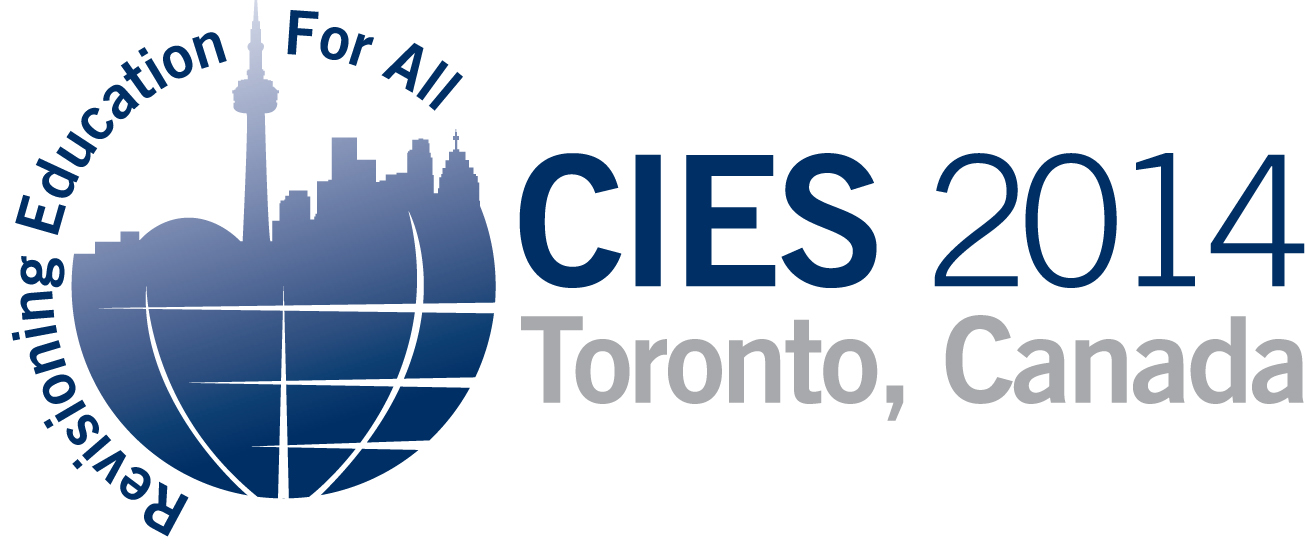
Nordic comparative and international scholars were represented at the CIES conference held in Toronto March 10-15.
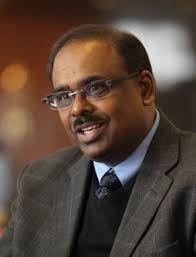 Professor Vinayagum Chinapah, Stockholm University, headed a panel entitled "Inclusiveness in international and comparative education - Revisioning Education for All". Research and evidence from an international (i.e. Europe, Asia, and Africa) and comparative perspective (i.e. theories, practices) were presented in an attempt to highlight the challenges and successes made towards Education for All and Post EFA. This international and comparative perspective is necessary in the discourse of the EFA goals and to envision their intentions and the realities we are facing. The panelists, Nilani De Silva, Ingrid Engdahl, Cresantus Biamba and Sarit Grinberg Rabinowicz, focused on different aspects of education with reference to the EFA goals. Professor Vinayagum Chinapah, Stockholm University, headed a panel entitled "Inclusiveness in international and comparative education - Revisioning Education for All". Research and evidence from an international (i.e. Europe, Asia, and Africa) and comparative perspective (i.e. theories, practices) were presented in an attempt to highlight the challenges and successes made towards Education for All and Post EFA. This international and comparative perspective is necessary in the discourse of the EFA goals and to envision their intentions and the realities we are facing. The panelists, Nilani De Silva, Ingrid Engdahl, Cresantus Biamba and Sarit Grinberg Rabinowicz, focused on different aspects of education with reference to the EFA goals.

Espen Stranger-Johannessen is a Norwegian PhD student at University of British Colombia. He participated in a New Scholars Workshop and presented a paper on "Trends and Development of Community Libraries in Africa: With Particular Reference to Uganda", in which he provided an overview and analysis of the literature on community libraries in Africa, and provide a more detailed account of the nature and function of community libraries in Uganda.

Ellen Carm is an Associate Professor at Oslo and Akershus University College and presented the paper "From EFA to Learning for All", arguing that by creating space for interaction and negotiation between the different epistemologies of learning that traditionally are reflected in the informal, non-formal and formal educational approaches (Coombe, 1974), the three typologies of learning can be merged to reflect the diverse sociocultural contexts and the diverse needs of the learners in a globalized world.
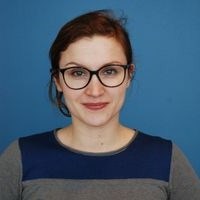 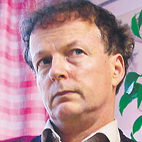 Dr. Nelli Piattoeva and Professor Tuomas Takla from the University of Tampere presented on "Transnational policy of educational assessment in the making - the case of READ (Russian Education Aid for Development)". On the surface, the READ activities seem to involve three parties: the World Bank, Russia and the eight developing countries assisted in the endeavour. However, the former and ongoing activities of READ, as revealed in its documentation and their interviews with participants in the program and other experts, show that this program contributes to the formation of a complex network of actors who develop and promote the transnationalisation of assessment policies and practices. The network is defined by a common belief in the necessity of measuring learning outcomes, joint development of transnational assessment tools required to root the policy, and a somewhat clear division of labour both technically (production of tools) and geopolitically (the geographical scope of actions). Dr. Nelli Piattoeva and Professor Tuomas Takla from the University of Tampere presented on "Transnational policy of educational assessment in the making - the case of READ (Russian Education Aid for Development)". On the surface, the READ activities seem to involve three parties: the World Bank, Russia and the eight developing countries assisted in the endeavour. However, the former and ongoing activities of READ, as revealed in its documentation and their interviews with participants in the program and other experts, show that this program contributes to the formation of a complex network of actors who develop and promote the transnationalisation of assessment policies and practices. The network is defined by a common belief in the necessity of measuring learning outcomes, joint development of transnational assessment tools required to root the policy, and a somewhat clear division of labour both technically (production of tools) and geopolitically (the geographical scope of actions).

Dr. Greta B. Gudmundsdottir, The Norwegian Center for ICT in Education, posed the question "How do Teacher Education Programmes in Norway prepare New Teachers in the Use of ICTs?" Preliminary findings of her study indicates that the newly graduated teachers are critical to the lack of ICT focus in their teacher education institutions and it appears that teacher education is lagging behind the demands in school, when it comes to focusing on digital competence and the use of ICT. This is disturbing as early experiences of teachers are crucial in determining teachers’ attitudes towards their profession, their professional development, their classroom practice and not the least their endurance in the profession.
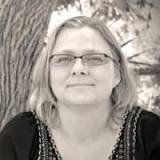 Professor Halla B. Holmarsdottir from Oslo and Akershus University College participated in a panel and presented on "Youth in Transition", discussing how youth unemployment, and the lack of training opportunities, has become a worldwide problem. For young people, the transition between education and employment is not always a straightforward path, moving seamlessly from school or university to their first job. In fact this transition is very diverse. Those youth who face challenges or who are unsuccessful in the transition between schooling and securing their livelihoods can find themselves excluded in society. Professor Halla B. Holmarsdottir from Oslo and Akershus University College participated in a panel and presented on "Youth in Transition", discussing how youth unemployment, and the lack of training opportunities, has become a worldwide problem. For young people, the transition between education and employment is not always a straightforward path, moving seamlessly from school or university to their first job. In fact this transition is very diverse. Those youth who face challenges or who are unsuccessful in the transition between schooling and securing their livelihoods can find themselves excluded in society.
 Associate Professor Heidi Biseth, Buskerud and Vestfold University College, presented and discussed development and testing of a teaching component in teacher education, designed to encourage the use of social media to increase democratic participation in education and society. A relatively shallow understanding of democracy among the 60 teacher students in the study was exposed. The reflective writing students did also revealed that although they are well acquainted with the use of social media in their everyday lives, the use of this technology within their own teaching practice was limited, if at all existent. The relationship between democratic participation and the use of social media was, in other words, not evident to the students. Associate Professor Heidi Biseth, Buskerud and Vestfold University College, presented and discussed development and testing of a teaching component in teacher education, designed to encourage the use of social media to increase democratic participation in education and society. A relatively shallow understanding of democracy among the 60 teacher students in the study was exposed. The reflective writing students did also revealed that although they are well acquainted with the use of social media in their everyday lives, the use of this technology within their own teaching practice was limited, if at all existent. The relationship between democratic participation and the use of social media was, in other words, not evident to the students.
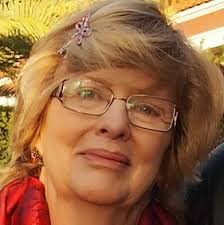 Dr. Ingrid Munck, Göteborg University, presented a paper entitled "Measurement Invariance Studies for International Comparisions - New Insights from Modern Modeling Methods for CivEd 1999 and ICCS 2009". The methodological intentions was to go beyond today’s high-quality measurement approaches behind IEA scales, refine them for comparability with new statistical testing tools available in the Mplus program (www.statmodel.com) that scrutinize the assumptions about measurement invariance across countries. Dr. Ingrid Munck, Göteborg University, presented a paper entitled "Measurement Invariance Studies for International Comparisions - New Insights from Modern Modeling Methods for CivEd 1999 and ICCS 2009". The methodological intentions was to go beyond today’s high-quality measurement approaches behind IEA scales, refine them for comparability with new statistical testing tools available in the Mplus program (www.statmodel.com) that scrutinize the assumptions about measurement invariance across countries.
 Dr. Zehlia Babaci-Wilhite, University of California Berkely, presented her research in the paper "Indigenous langage of instruction: A right in aid to Africa", critically examining the arguments for considering the use of local languages in schools as a human right referring to the debates on the use of a local versus global languages. Dr. Zehlia Babaci-Wilhite, University of California Berkely, presented her research in the paper "Indigenous langage of instruction: A right in aid to Africa", critically examining the arguments for considering the use of local languages in schools as a human right referring to the debates on the use of a local versus global languages.
|